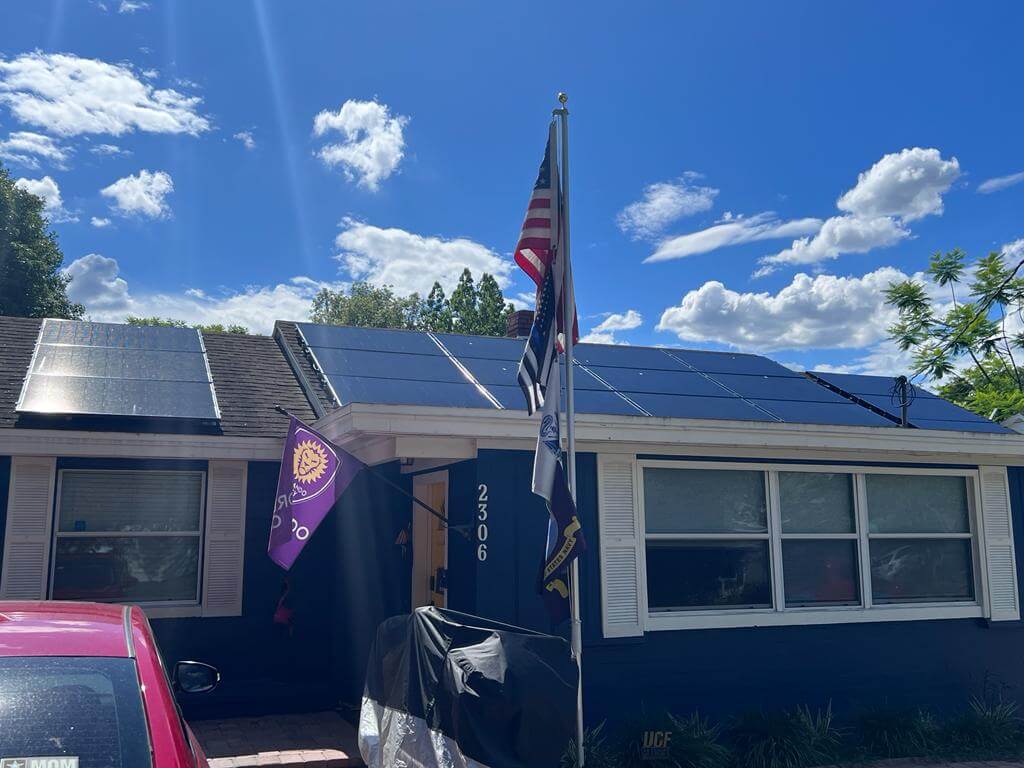A sensible choice that can result in energy savings, a smaller carbon footprint, and enhanced energy independence is to invest in a smart solar system for your Florida house. However, choosing the best smart solar system might be difficult due to the abundance of options on the market. We will walk you through the crucial elements to take into account when selecting a smart solar system for your Florida home in this in-depth guide, ensuring you make an informed choice that matches your energy goals and makes the most of solar energy.
Identifying Your Energy Needs and Objectives
1.1 Analysis of Energy Consumption: Analyze the energy use patterns in your home to start. To determine your average monthly and yearly energy usage, review your utility invoices. The size and capacity of the solar system required to meet a sizable amount of your energy needs will be determined by this analysis.
1.2 Setting Energy Goals: Take into account your energy targets. Do you want to save money on your energy costs, become energy independent, or support environmental sustainability? Your decision-making process will be guided by a clear understanding of your goals, which will also help you rank the features and capabilities you want in a smart solar system.
1.3 Upcoming Energy Needs: Be prepared for future shifts in your energy use habits. Are you preparing to buy an electric vehicle, increase the size of your home, or add new appliances? Future energy needs are taken into account to make sure your smart solar system is scalable and can handle any prospective rise in energy consumption.
System Design and Components
2.1 Performance and Efficiency of Solar Panels:
Analyze the effectiveness and performance of the solar panels that various manufacturers are offering. Higher-rated solar panels will produce more electricity from the same amount of sunshine, so look for those with higher ratings. To make sure the panels are appropriate for Florida’s climatic circumstances, take into account variables including temperature coefficients, shade tolerance, and warranties.
2.2 Inverter Technology: An essential part of converting solar panels’ DC power into usable AC power is the inverter. Choose high-quality inverters with features like grid compatibility and maximum power point tracking (MPPT). The common varieties to investigate include string inverters, microinverters, and power optimizers, each having specific benefits and factors to take into account.
2.3 Battery Storage (Optional): You may want to add battery storage to your smart solar system if you want to increase your energy independence and have backup power during power outages. Compare the capacities, technology, and compatibility of several batteries with the solar panels and inverters of your choice. Determine the ROI and cost-effectiveness of battery storage depending on your energy consumption and utility costs.
Financial Factors and Motivators
3.1 Budget and Cost: Assess the cost-effectiveness of various solutions and decide on your budget for establishing a smart solar system. A long-term return on investment based on energy savings and potential incentives should be taken into account when comparing rates from various solar installation service providers.
3.2 Financing alternatives: Look into solar loans, leases, and power purchase agreements (PPAs) as possible financing alternatives for smart solar systems. Determine which financing option is best for your financial circumstances by understanding its terms, interest rates, and ownership implications.
3.3 Rebates and Incentives: Find out about Florida’s solar installation incentives and rebates from the federal, state, and local governments. These incentives can drastically lower your smart solar system’s upfront expenses and increase its financial feasibility. Look for initiatives like net metering, the federal Investment Tax Credit (ITC), and any local utility subsidies.
In conclusion, it’s important to carefully evaluate your energy requirements, system design, and budgetary considerations when selecting the best smart solar system for your Florida house. You may make an informed choice by analyzing your energy usage, defining goals, assessing the system’s components, and comprehending the financial repercussions. Using intelligent solar technology in your Florida house will not only help you use less conventional energy but will also help create a more sustainable future.

